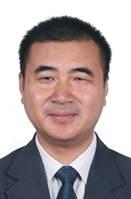Keynote Speakers
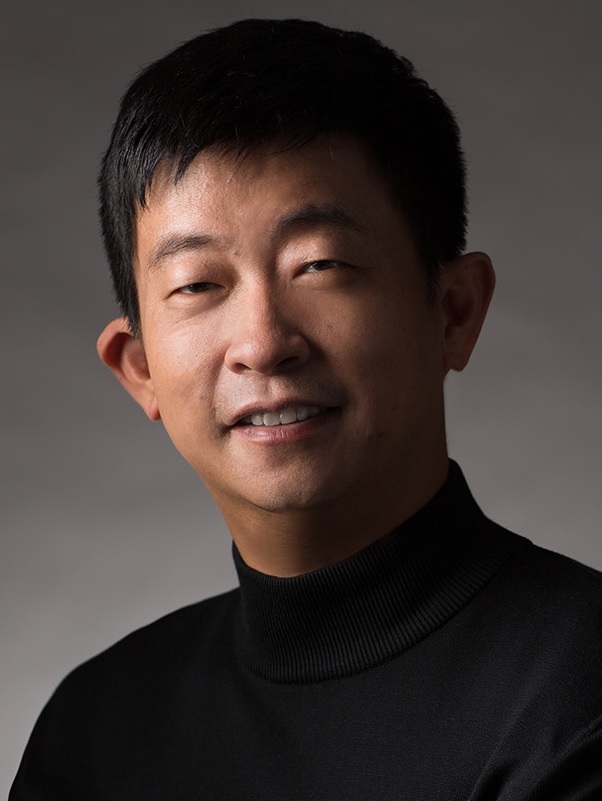
Zhu Han
University of Houston, USA
IEEE Fellow
Biography: Zhu Han (S’01–M’04-SM’09-F’14) received the B.S. degree in electronic engineering from Tsinghua University, in 1997, and the M.S. and Ph.D. degrees in electrical and computer engineering from the University of Maryland, College Park, in 1999 and 2003, respectively. From 2000 to 2002, he was an R&D Engineer of JDSU, Germantown, Maryland. From 2003 to 2006, he was a Research Associate at the University of Maryland. From 2006 to 2008, he was an assistant professor at Boise State University, Idaho. Currently, he is a John and Rebecca Moores Professor in the Electrical and Computer Engineering Department as well as in the Computer Science Department at the University of Houston, Texas. His research interests include wireless resource allocation and management, wireless communications and networking, game theory, big data analysis, security, and smart grid. Dr. Han received an NSF Career Award in 2010, the Fred W. Ellersick Prize of the IEEE Communication Society in 2011, the EURASIP Best Paper Award for the Journal on Advances in Signal Processing in 2015, IEEE Leonard G. Abraham Prize in the field of Communications Systems (best paper award in IEEE JSAC) in 2016, and several best paper awards in IEEE conferences. Dr. Han was an IEEE Communications Society Distinguished Lecturer from 2015-2018, AAAS fellow since 2019, and ACM distinguished Member since 2019. Dr. Han is a 1% highly cited researcher since 2017 according to Web of Science. Dr. Han is also the winner of the 2021 IEEE Kiyo Tomiyasu Award, for outstanding early to mid-career contributions to technologies holding the promise of innovative applications, with the following citation: ``for contributions to game theory and distributed management of autonomous communication networks."
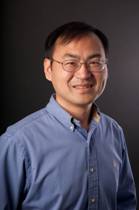
Shigang Chen
University of Florida, USA
IEEE Fellow
Title: Internet Data Streaming and Sketches
Biography: Dr. Shigang Chen (sgchen@cise.ufl.edu) is a professor with Department of Computer and Information Science and Engineering at University of Florida. He received his B.S. degree in computer science from University of Science and Technology of China in 1993. He received M.S. and Ph.D. degrees in computer science from University of Illinois at Urbana-Champaign in 1996 and 1999, respectively. After graduation, he had worked with Cisco Systems for three years before joining University of Florida in 2002. His research interests include data streaming, Internet of things, cybersecurity, RFID technologies, intelligent cyber-transportation systems, etc. He published over 200 peer-reviewed journal/conference papers. He received the NSF CAREER Award and several best paper awards. He holds 13 US patents, and many of them were used in software products. He served as an associate editor for IEEE Transactions on Mobile Computing, IEEE/ACM Transactions on Networking and a number of other journals. He served in various chair positions or as committee members for numerous conferences. He held the University of Florida Research Foundation Professorship and the University of Florida Term Professorship. He is a Fellow of IEEE and an ACM Distringuished Scientist.
2021 Keynote Speakers
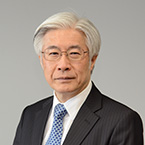
Ken-ichi Sato
AIST (National Institute of Advanced Industrial Science and Technologies)
IEEE Fellow
Title: How Optical Switching Technologies can Innovate Intra Data Centre Networks
Abstract: Optical technologies have been extensively used for transmission and wavelength routing using ROADMs in telecommunication networks. Most optical routing/switching schemes are transparent to the bitrates of the signals, which is completely different from electrical switching systems. The power consumption of optical switching, W/bit, can be much smaller than that of electrical systems and hence large bandwidth and low power consumption systems cab be created. In intra-data centre networks, increased bandwidth demands and the resultant power consumption hinder the scaling out of present multi-tier electrical switching networks. The introduction of optical switches into data centres will enable bandwidth expansion and substantial reductions in electrical power consumption. Electrical-packet and optical-circuit hybrid switching can break the bandwidth and power barriers by effectively offloading large flows from electrical switches to optical switches, while the non-existence of viable optical memories discourages reliance on optical processing. To realize efficient hybrid switch networks that suit hyperscale data centres, the development of large port count optical switches is critical. It enables single-tier optical switching and hence simplifies optical connection set-up process without using complicated routing control for optimization while removing the need to respond to dynamic traffic changes. In addition, optical switch parallelism, which matches the trend in merchant silicon switch chip advances, produces ultra-low blocking probabilities and low control latency that can be attained with a completely decentralized control scheme. This presentation demonstrates the recent advances in large port count optical switch development. The control mechanism, another important point to be developed before optical switches can be widely applied in data centers, will also be highlited and the expected performances are elucidated.
Biography: Ken-ichi Sato is a Professor Emeritus at the Graduate School of Engineering, Nagoya University, an NTT R&D Fellow, and currently with National Institute of Advanced Industrial Science and Technology (AIST). Before joining the Nagoya University in April 2004, he was an Executive Manager of the Photonic Transport Network Laboratory at NTT. He has been a leading researcher in the field of telecommunications; his most significant achievements lie in two of the important transport network technology developments. One is ATM (Asynchronous Transfer Mode) network technology, which includes the invention of the Virtual Path concept. The other is photonic network technology, which includes the invention of the optical path concept and various networking and system technologies. He has authored/co-authored more than 550 research publications in international journals and conferences. He holds 50 granted patents and more than 100 pending patents. His contributions extend to serving on numerous committees of international conferences including OFC 2016 General Chair and OFC 2014 Program Chair. Prof. Sato is a Fellow of the Institute of Electronics, Information and Communication Engineers (IEICE) of Japan and a Fellow of the IEEE. He served as the president of the IEICE during 2016-2017. He received numerous awards from the IEICE and IEEE. He was also the recipient of the Distinguished Achievement Award of the Ministry of Education, Science and Culture in 2002, and the Medal of Honor with Purple Ribbon from Japan’s Cabinet Office in 2014.
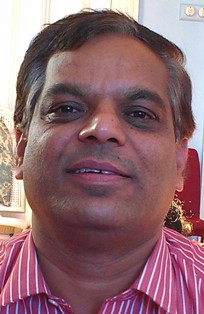
Rajkumar Buyya
University of Melbourne, Australia
IEEE Fellow
Google Scholar with h-index of 135
Title: New Frontiers in Cloud and Edge Computing for Big Data & Internet-of-Things Applications
Abstract: Computing is being transformed to a model consisting of services that are delivered in a manner similar to utilities such as water, electricity, gas, and telephony. In such a model, users access services based on their requirements without regard to where the services are hosted or how they are delivered. Cloud computing paradigm has turned this vision of "computing utilities" into a reality. It offers infrastructure, platform, and software as services, which are made available to consumers as subscription-oriented services. Cloud application platforms need to offer (1) APIs and tools for rapid creation of elastic applications and (2) a runtime system for deployment of applications on geographically distributed computing infrastructure in a seamless manner.
The Internet of Things (IoT) paradigm enables seamless integration of cyber-and-physical worlds and opening up opportunities for creating new class of applications for domains such as smart cities and smart healthcare. The emerging Fog/Edge computing paradigm is extends Cloud computing model to edge resources for latency sensitive IoT applications with a seamless integration of network-wide resources all the way from edge to the Cloud.
This keynote presentation will cover (a) 21st century vision of computing and identifies various IT paradigms promising to deliver the vision of computing utilities; (b) innovative architecture
for creating elastic Clouds integrating edge resources and managed Clouds, (c) Aneka, a Cloud Application Platform, for rapid development of Cloud/Big Data applications and their deployment on private/public Clouds with resource provisioning driven by SLAs, (d) a novel FogBus software framework with Blockchain-based data-integrity management for facilitating end-to-end IoT-Fog/Edge-Cloud integration for execution of sensitive IoT applications, (e) experimental results on deploying Cloud and Big Data/ IoT applications in engineering, and health care, satellite image processing, and smart cities on elastic Clouds; and (f) directions for delivering our 21st century vision along with pathways for future research in Cloud and Edge/Fog computing.
Biography: Dr. Rajkumar Buyya is a Redmond Barry Distinguished Professor and Director of the Cloud Computing and Distributed Systems (CLOUDS) Laboratory at the University of Melbourne, Australia. He is also serving as the founding CEO of Manjrasoft, a spin-off company of the University, commercializing its innovations in Cloud Computing. He has authored over
750 publications and seven text books including "Mastering Cloud Computing" published by McGraw Hill, China Machine Press, and Morgan Kaufmann for Indian, Chinese and international markets respectively. Dr. Buyya is one of the highly cited authors in computer science and software engineering worldwide (h-index=135, g-index=300, 97,000+ citations). "A Scientometric Analysis of Cloud Computing Literature" by German scientists ranked Dr. Buyya as the World's Top-Cited (#1) Author and the World's Most-Productive (#1) Author in Cloud Computing. Dr. Buyya is recognised as Web of Science “Highly Cited Researcher” for four consecutive years since 2016, IEEE Fellow, Scopus Researcher of the Year 2017 with Excellence in Innovative Research Award by Elsevier, and the “Best of the World”, in Computing Systems field, by The Australian 2019 Research Review.
Software technologies for Grid, Cloud, and Fog computing developed under Dr.Buyya's leadership have gained rapid acceptance and are in use at several academic institutions and commercial enterprises in 50 countries around the world. Dr. Buyya has led the establishment and development of key community activities, including serving as foundation Chair of the IEEE Technical Committee on Scalable Computing and five IEEE/ACM conferences. These contributions and international research leadership of Dr. Buyya are recognized through the award of "2009 IEEE Medal for Excellence in Scalable Computing" from the IEEE Computer Society TCSC. Manjrasoft's Aneka Cloud technology developed under his leadership has received "Frost & Sullivan New Product Innovation Award". He served as founding Editor-in-Chief of the IEEE Transactions on Cloud Computing. He is currently serving as Editor-in-Chief of Software: Practice and Experience, a long standing journal in the field established ~50 years ago. For further information on Dr.Buyya, please visit his cyberhome: www.buyya.com
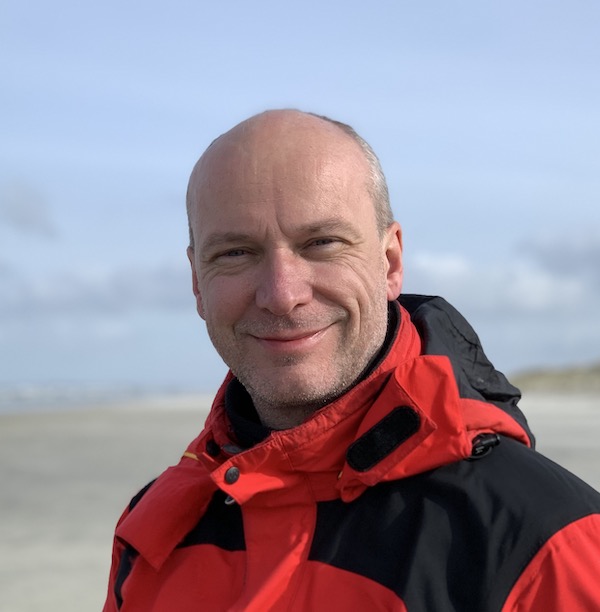
Falko Dressler
TU Berlin, Germany
IEEE Fellow
Google Scholar with h-index of 50
Title: Cyber Physical Networks: On Networked Control and Human Interaction
Abstract: Research on Cyber Physical Systems (CPS) has led to quite a number of astonishing technical solutions that are becoming standard in many application domains affecting our everyday life. The technical innovations range from control theory concepts to real-time wireless communication to networked control. Some of the most challenging applications include cooperative autonomous driving and industry automation. 5G and the Tactile Internet provide first technical solutions from a wireless communications perspective. At the same time, our research community is facing novel challenges related to the impact of individual human beings that are an integral part of the systems, both as an expert user as well as a source of disruption. We thus need a paradigm shift from classical CPS to Cyber Physical Social Systems (CPSS). Studying the impact of CPS on humans and vice versa, hybridization, i.e., machines and human users covering parts of the system function in deep interaction, is required as a novel core concept of such hybridized CPSS. In this talk, we discuss the challenges from a communications perspective based on examples of distributed control in the automotive environment such as cooperative driving.
Biography: Falko Dressler is full professor and Chair for Telecommunication Networks at the School of Electrical Engineering and Computer Science, TU Berlin. He received his M.Sc. and Ph.D. degrees from the Dept. of Computer Science, University of Erlangen in 1998 and 2003, respectively. Dr. Dressler has been associate editor-in-chief for IEEE Trans. on Mobile Computing and Elsevier Computer Communications as well as an editor for journals such as IEEE/ACM Trans. on Networking, IEEE Trans. on Network Science and Engineering, Elsevier Ad Hoc Networks, and Elsevier Nano Communication Networks. He has been chairing conferences such as IEEE INFOCOM, ACM MobiSys, ACM MobiHoc, IEEE VNC, IEEE GLOBECOM. He authored the textbooks Self-Organization in Sensor and Actor Networks published by Wiley & Sons and Vehicular Networking published by Cambridge University Press. He has been an IEEE Distinguished Lecturer as well as an ACM Distinguished Speaker. Dr. Dressler is an IEEE Fellow as well as an ACM Distinguished Member. He is a member of the German National Academy of Science and Engineering (acatech). He has been serving on the IEEE COMSOC Conference Council and the ACM SIGMOBILE Executive Committee. His research objectives include adaptive wireless networking (sub-6GHz, mmWave, visible light, molecular communication) and wireless-based sensing with applications in ad hoc and sensor networks, the Internet of Things, and Cyber-Physical Systems.
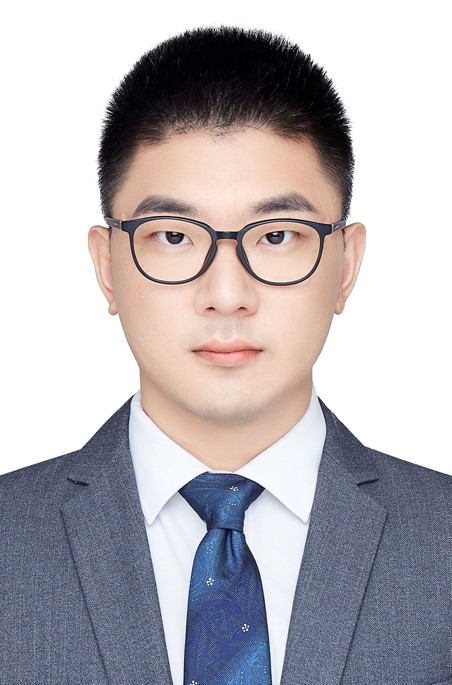
Zhaolong Ning
Chongqing University of Posts and Telecommunications
Highly Cited Researcher
Title: Distributed Communication and Computing at the Network Edge
Biography: Zhaolong Ning received the PhD degree from Northeastern University, China in 2014. He was a research assistant with Kyushu University from 2013 to 2014, Japan, and a Hong Kong Scholar with The University of Hong Kong from 2019 to 2021. Currently, he is a full professor at the Chongqing University of Posts and Telecommunications, China. His research interests include Internet of Things, mobile edge computing, and network optimization. He has published more than 120 scientific papers in international journals and conferences, such as IEEE JSAC, IEEE TMC, IEEE TPDS, IEEE T-ITS, IEEE COMST, IEEE COMMAG, IEEE Wireless Communications, and so on. He is the recipient of several prestigious awards including the Best Land Transportation Paper Award of IEEE TVT 2020, Best Paper Award of IEEE Systems Journal 2019 and so on. He serves as an associate editor or guest editor of several journals, such as the IEEE TII and IEEE TCSS. He has also chaired more than 20 international conferences, such as IEEE GLOBECOM and IEEE Healthcom. He is a Highly Cited Researcher 2020 (Web of Science), Highly Cited Chinese Researchers 2020 (Elsevier), and elected to be the Young Elite Scientists Sponsorship Program by China Association for Science and Technology.
Invited Speaker
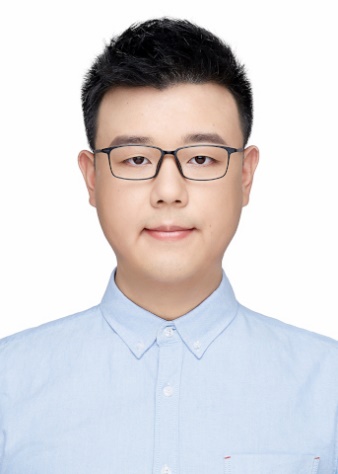
Zhiyu Wang
Intelligent Network Research Institute, Zhejiang Lab, China
Biography: Dr. Zhiyu Wang, received the B.Eng. and Ph.D. degrees from the College of Control Science and Engineering, Zhejiang University, Hangzhou, China in 2016 and 2021. He is currently with the Intelligent Network Research Institute, Zhejiang Laboratory, Hangzhou, China. He has published multiple research papers in top journals and is the (co)-inventor of over 10 granted patents. At present, He is working on intelligent computing-based network scheduling and security, as well as the reliability of an intelligent system. His research interests include system engineering, machine learning robustness, and intelligent optimization.
ICNCC 2019 Speakers
Fuchun SUN
Tsinghua University, China
Education background
Bachelor of Automation, Institute of Naval Aeronautical Engineering,
Beijing, China, 1986;
Master of Automation, Institute of Naval Aeronautical Engineering, Beijing,
China, 1989;
Ph. D. in Computer Science & Technology, Tsinghua University, Beijing,
China, 1997.
Social service
Tsinghua University: Assistant Director of Office of Scientific R&D;
State Key Laboratory of Intelligent Technology and Systems: Deputy Director;
IEEE: Senior Member;
Chinese Association of Artificial Intelligence: Council Member;
Chinese Association for Artificial Intelligence: Deputy Director and
Secretary-General of the Intelligent Control and Management Society;
IEEE Control System Society: Member of the Technical Committee on
Intelligent Control
Mechatronics, IEEE Trans. on Neural Networks, Soft Computing: Associate
Editor;
Chinese Journal of Intelligent Technology: Associate Editor;
Information Science: Guest Editor;
Science in China: Guest Editor.
Areas of Research
Interests/ Research Projects
Intelligent Control and Robotics, Guidance and Control for Mobile Robots
& Spacecrafts
Networked Control Systems
Information Sensing and Processing in Artificial Cognitive Systems
National Natural Science Foundation of China: Robust Routing Algorithms and
Simulations for Multi-Layered Satellite Network (2009-2010);
National Natural Science Foundation of China: Modeling and Intelligent
Autonomous Control of Near-Space Hypersonic Vehicle (2008-2010);
National 863 High-Tech Program: Real-Time Modeling and Navigation of Mobile
Robots in Dynamic Environment (2008-2010);
National Basic Research Program of China (The 973 Program): Knowledge
Inference and Multi-Modal Interaction of Unstructured Information
(2007-2011);
National Natural Science Funds for Distinguished Young Scholars: Modeling,
Planning and Control of Dual-Armed Space Robots (2007-2010);
National Natural Science Foundation of China: Multi-Objective Robust Control
through Fuzzy Singularly Perturbed Model and its Applications (2005-2007);
National Natural Science Foundation: Research on High-Precision and
High-Stability Intelligent Control of Spacecrafts (2005-2007);
National Basic Research Program of China (The 973 Program): Theories and
Techniques of Real-Time Intelligent Control and Optimization for Complex
Manufacturing Process (2003-2008);
National Natural Science Foundation of China: Dynamic Neuro-Fuzzy Control of
Multi-Link Flexible Robots and its Experimental Research (2001-2003);
National Distinguished Doctoral Dissertation Foundation: Dynamic Neuro-Fuzzy
Modeling and Control of Flexible-Link Manipulators (2001-2005).
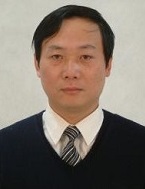
Jiankun Hu
University of New South Wales Canberra, Australia
Title: A New False Data Injection Attack on Smart Grid
Abstract: Smart grid is an emerging energy system, which has been heralded as a technological paradigm shift that can effectively address the issue of limited fossil fuel reserve in earth and also can reduce carbon emissions. However, modern cyber interconnected and computerized energy infrastructure has become the most targeted national critical infrastructure for cyberattacks. A recent high-profile cyberattack on the Ukraine power grid has compromised three power control centres, taking down 30 substations and leaving over 225,000 Ukrainians without power. Other high-profile attacks include penetrations over two US nuclear plants and the Struxnet attack over Iranian nuclear plant. Recently a new type of cyberattack called the false-data-injection attack has been discovered which can evade the widely deployed bad data detection method in the emerging smart grid (SG). Most existing works on false data injection attacks are based on the DC model while real-life industrial systems are actually AC model based. We have investigated the applicability of existing research works on the industrial scale system and discover a new false data injection attack that can penetrate industrial scale bad data detection mechanism.
Dr. Jiankun Hu is a full professor of Cyber Security at School of
Engineering and IT, University of New South Wales Canberra, Australia (also
named Australian Defense Force Academy). He has obtained the Bachelor
degree, Automation and Control, 1983, from Hunan University, P.R. China;
Ph.D. Control Engineering, 1993, from Harbin Institute of Technology, P.R.
China. He has also obtained his Masters from the Software Engineering,
Monash University Australia in 2001. He was awarded German Alexander von
Humboldt Foundation Fellowship. He is the invited expert of Australia
Attorney-General’s Office on identity management, and served at the Panel of
Mathematics, Information and Computing Sciences (MIC), ARC ERA (The
Excellence in Research for Australia) Evaluation Committee 2012. He has
served as Co-Chair for Network Security Symposiums of IEEE ICC and IEEE
Globecom. He is an associate editor at IEEE Transactions on Information
Forensics and Security. Prof. Hu has been awarded 9 ARC (Australia Research
Council) grants. His research interest includes data-driven cyber security
(intrusion detection), fingerprint recognition/forensics,
bio-cryptography,machine learning and applied cryptography. His research
works have been published at many top venues such as IEEE Transactions on
Pattern Analysis
and Machine Intelligence, IEEE Transactions on Information Forensics and
Security, IEEE Transactions on Smart Grid, IEEE Transactions on Parallel and
Distributed Systems (TPDS), and IEEE Transactions on Computers.

Quanbo Ge
Tongji University, China
Title: Power IoT System in Smart City
Abstract: The city is having a property with unified logic in the big data and AI period. Industrial ecology, business scenario and service, and government management model should be deeply affected by advanced information technology based on 5G and IoT cloud platform. The system constructed by data production and feedback process is non-standard and complex when data gets to the platform from collection devices, sensing and communication. Thereby, it is necessary and difficult in scientific application research to detect and identify the quality problem from the business end data. Most of current researches tried to do case analysis and experience summary and analyzed the reasons of special error production for given device styles. This talk mainly discusses abnormal alarm and fault analysis on IoT devices such as Intelligent electric meter and gateway by introducing intelligent technology in the smart city background. Actually, it tries to solve some problems existed in power IoT system by using the fusion of knowledge, data and model driven ways. The content mainly includes hardware development, location of system faults, and evaluation on communication quality, and abnormal time sequence processing and so on. For the hardware development, some power monitoring device and system have been designed. Secondly, the fault identification method based on data-driven model is presented by using fault characters of power system. Thirdly, the communication quality evaluation begins for fault state space of single IoT device. The abnormal processing on time sequence includes filling missing data and abnormal identification based on prediction frame. The works mentioned above form a general system to solve IoT data quality problem in smart scene. It is greatly helpful for smart video analysis and service, and provides a base for businesses such as smart power, transportation, and security and so on.
Quanbo Ge is a researcher and a Ph.D supervisor in Tongji University of China. He was also a young candidate of the “Ten-thousand Talents Program” in Zhejiang Province of China and was one of excellent postdoctoral fellows in Zhejiang Province (2017). From Jan.2012 to Jan.2013, he was a visiting scholar of the Department of Electronics and Computer Engineering in the University of Minnesota. He received the 4th Young Scientist Award of China Automation Society and is supported by Zhejiang Outstanding Youth Science Fund in 2016. His main research interests include smart Kalman filtering, information fusion, energy internet and autonomous unmanned system and so on. He has published more than 30 SCI papers including IEEE TAC, IEEE TNNLS, IEEE TIE, IEEE TSMC:Systems, IET CTA, and AMC and so on. The work has been supported by more than ten projects such as NSFC, Zhejiang Province Nature Science Foundation, and China Postdoctoral Science Foundation and so on. Dr. Ge is also one of deputy directors of the CYA of the China Automation Association (CAA), a member of the Intelligent Automation Committee of CAA, and one of deputy secretaries of the Hybrid Intelligent Committee and so on.
Invite Speaker
Qiyue Yu
Harbin Institute of Technology, China
Title: A Unified Multiuser Coding Framework for Multiple Access
Technologies
Abstract: The core of the NOMA techniques is to combine modulation
and coding to achieve a higher spectrum efficiency. In our work, multiple
access techniques are viewed as generalized coding schemes to support both
multiuser separation and coding gain. In this sense, traditional coding
schemes, e.g., low-density parity-check (LDPC) code, can be viewed as a
special case. Note that still a big difference exists between multiple
access techniques and LDPC codes. In particular, both binary and non-binary
LDPC codes are generated based on finite field theory; whereas multiple
access works based on not necessarily a finite field. This work presents a
mathematical framework, called "multiuser coding", to unify multiple access
and traditional coding theories. To verify the proposed framework, we
propose a uniquely decodable mapping (UDM) based codebook for futuristic
multiple access communications. A three-dimensional Tanner graph based
message passing algorithm (MPA) is introduced for multiuser detection.
Simulation results show that the proposed scheme can support a large number
of users with a promising performance.
Dr. Qiyue Yu, received her B. Eng., M. Eng., and Ph.D. degrees from
Harbin Institute of Technology (HIT), China, in 2004, 2006, and 2010,
respectively.
She is currently a full professor at the school of Electronics and
Information Engineering, HIT. During Apr. 2007-Mar. 2008, she studied in
Adachi Lab, Tohoku University, Japan and was a research assistant of Tohoku
University Global COE program. In 2010, she was invited to City University
of Hong Kong to research on multi-user MIMO technology. And she was invited
to University of Southern Queensland to do researches on the distributed
antenna system in Jan.-Mar. 2014. During Sept.2015-Sept.2016, she was a
visiting scholar in University of California, Davis. Her research interests
include modulation and coding, information theory, multi-access techniques
and MIMO for broadband wireless communications.
